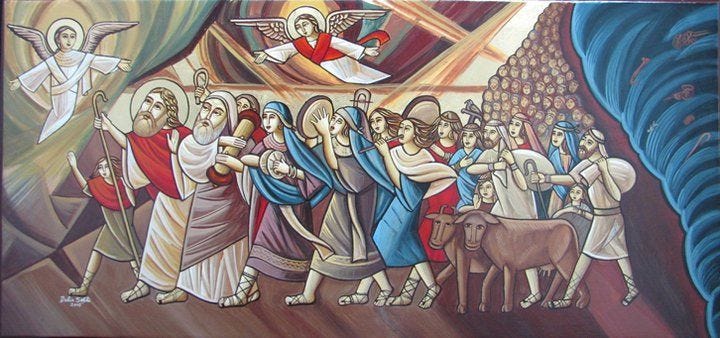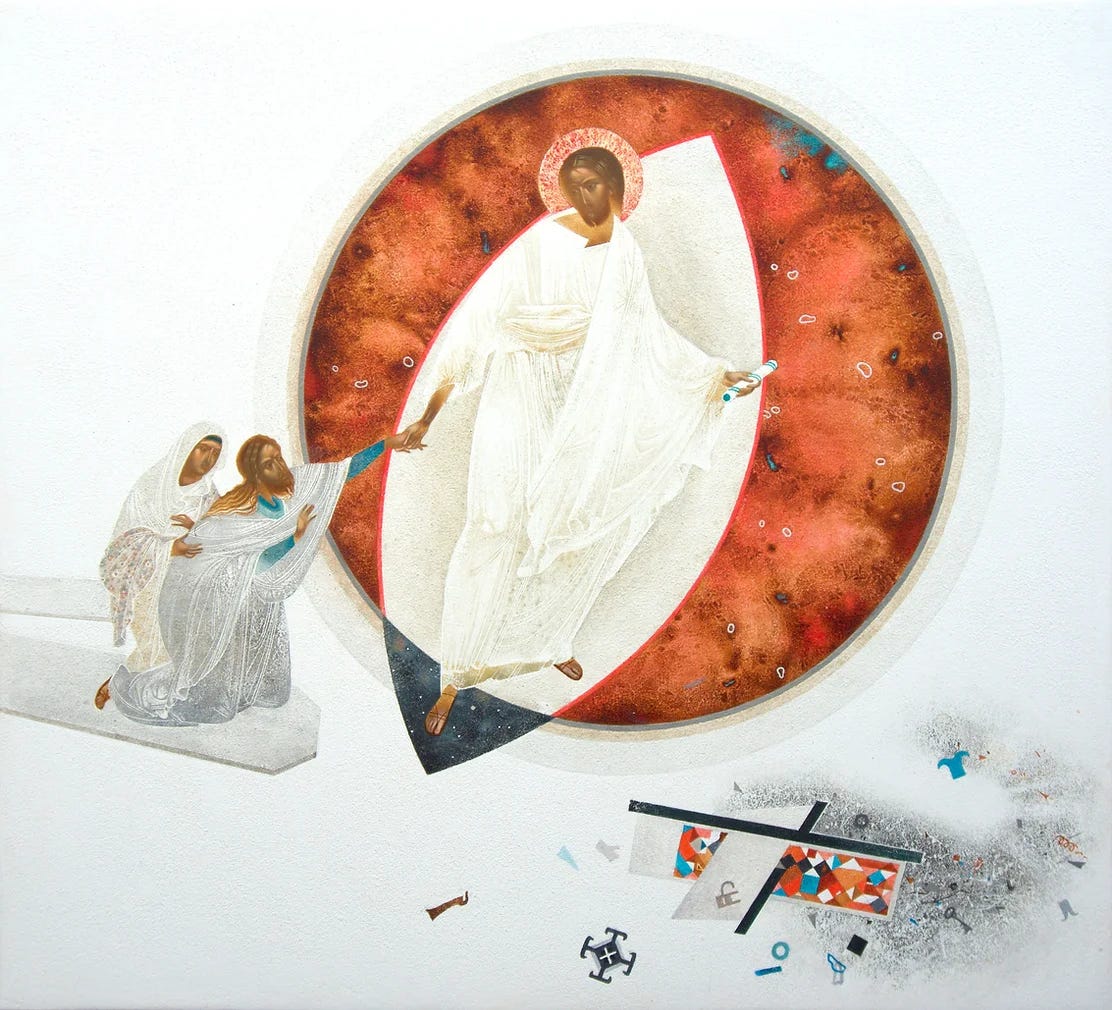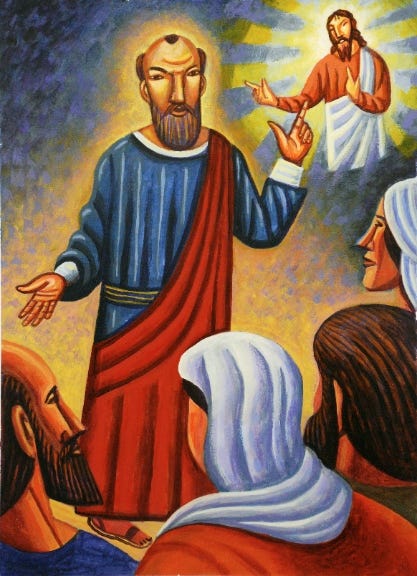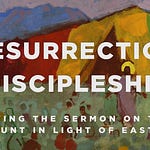“My hope is built on nothing less than Jesus’ blood and righteousness. I dare not trust the sweetest frame, but wholly trust in Jesus’ name.”
For the past three weeks, we have been focused on the beautiful theology of grace Paul systematically lays out in Romans 7 and 8. One of the characteristics of Paul’s writings is they tend to be theologically rich. I am a theology nerd thru and thru. I have specific books I read every year at particular times of the year to help keep me theologically grounded as the busyness of the church attempts to fill my calendar. I love Paul’s systematic theology in Romans.
When we look to Romans, finding ourselves in the weeds is an easy path. Our reading this morning is an excellent example of how this can happen. In 14 verses, Paul touches on debt, adoption, and the Spirit life. I naturally want to unpack at least two of those topics with you in a sermon and dive deep into Paul’s theology. In doing that, I risk telling you about God’s grace instead of helping us see where God’s grace is at work in your own lives and in the life of Walker Chapel.
Paul begins with deep theology and leaves us with hope.
Paul states that we have hope through the grace of God.
Hope is a good thing to have.
Hope is a theme laced through our holy scriptures.
Exodus 1-15 is the story of Israel’s hope in the Lord to deliver them from captivity in Egypt. The Israelites’ journey from slavery in Egypt to freedom in the Promised Land is a testament to their hope in God’s deliverance and faithfulness, culminating in the miraculous crossing of the Red Sea.
The prophet Isaiah had hope.
“The wolf shall live with the lamb, the leopard shall lie down with the kid, the calf and the lion and the fatling together, and a little child shall lead them. Thee cow and the bear shall graze, their young shall lie down together; and the lion shall eat straw like the ox.” [i]
The restoration of creation. A return to Eden-like conditions across all of creation. God’s grace restores every nook and cranny of the universe.
Jesus’ parable of the Prodigal Son is a parable of hope. Jesus illustrates the hope of forgiveness and reconciliation through God’s boundless love and grace, no matter how far one has strayed.
We have the culmination of our hope in the resurrection of Christ. The cornerstone of Christian hope lies in the resurrection of Jesus Christ, defeating death, and offering the promise of eternal life to all who believe in Him.
Hope for ourselves.
Hope for creation.
Hope for our community.
Hope for the church.
Hope is not frequently used in our home or work vocabulary.
Color me guilty. As a pastor, the word hope is not one I frequently use. Thinking about my time over the past three weeks in coffee conversations with many of you or just reading the Washington Post each morning, the topic of hope has not come up.
A few years ago, a pastor friend asked me how I felt about the future of the United Methodist Church. I told the friend I was “cautiously optimistic.” I gave myself space so that should things go sideways, I would not be too disappointed, or so I could say, “I told you so.”
I thought of declining memberships, financial worries, and a lack of perceived relevancy by many in our community, so cautious optimism sounded good.
We all do this in the various spaces of our lives. We guard our expectations to avoid disappointment. A recent Pew Research Center study confirms this. One in three of us lack confidence in the future.[ii] Look left. Look right. One of those two, or you lack confidence in what is to come, not even cautiously optimistic.
My pastor friend, who asked about my feelings on the state of the church, was disturbed by my cautious optimism.
“Teer,” he said, “you are filled with the Holy Spirit. It happened at your baptism. It continues to happen every day. And the Church is filled with the Spirit too! Keep your optimism and hold onto hope.”

“For in hope we were saved. Now hope that is seen is not hope. For who hopes for what is seen? But if we hope for what we do not see, we wait for it with patience.”[iii]
The problem with optimism is that optimism relies on clinging to the myth that creation can, through progress, course correct and end the ways we inflict suffering upon ourselves and others. Optimism is focused on our actions, while hope looks to the One in whose image each of us was made. Don’t get me wrong, optimism is great. Optimism helps us keep a positive attitude as we do the things we do, but hope goes one further. Hope looks to the righting of all things we do that we should not do as well as the things we have left undone.
The language Paul uses, while laced with rich theological themes, one after another, is the language of hope, which is rooted in God’s amazing grace. While the world around us appears to be coming apart at the seams, and while the theological themes of the Bible may feel like it is out of touch noise that the world does not want to hear, the hope of God cuts the noise.
Saint Paul reminds the church, Christ’s body, that we are a body of hope because being filled with the Holy Spirit, and through our adoption, we have faith that what needs to be done is being done through the faithfulness of God. And friends, we get to be part of that work and faithfulness. Through worship, mission, and care, we are part of the hope being brought forth into the world., specifically in our corner of Northern Virginia. That is why what we do on Sunday morning and the other 6.5 days in the week matters! The world is selling optimism, but what the church proclaims is hope. What we proclaim is hope because we are a people of hope.
Over the past three weeks, I have met with members of the Walker Chapel community over coffee and tea at a coffee shop on Langston, here in the church, and in your homes. I have heard story after story about why Walker Chapel matters to Arlington but, more importantly, how Walker Chapel is working toward transforming the world through the hope of God rooted in grace.
From community events and mission efforts to Sunday school for children and groups for people of stripes, Walker Chapel has been a pillar of hope at the corner of North Glebe and Old Glebe for over 150 years.
Throughout our conversations, there have been laments over how the Chapel has changed over the years, along with how the congregation has shifted as a pandemic amplified church decline. I have seen pictures of celebrations in the Fellowship Hall and a jam-packed sanctuary during worship. You have told me, and I have seen where we once were, and we see the task before us now.
It would be easy in our conversations to stay cautiously optimistic about our future and protect ourselves from the unknowns of what is to come. Cautious optimism is not what I have heard. I have heard hope in your voices. Our hope is rooted in God’s not yet accomplished work in Arlington and beyond. The same hope that was present when this congregation first set up shop on Glebe Road.
The first people to worship at this site and in the various configurations since may have never dreamed of where Walker Chapel would be today – a preschool ministering to and caring for families, a growing congregation committed to sharing God’s grace with the world (not just in Arlington), endless opportunities to be in mission and ministry with churches around the world,
Like the first people to worship at Walker Chapel and the generations before us, we have hope for what is not yet seen because of the grace of God.
Grace is not about finishing. It is about beginning.
Grace is not about excuses. It is about newness.
Grace is not about what we do. It is about what God is doing and has done. Grace produces hope because God is at work. Our hope is in the faithful work of God.

The hope of God is bringing about a new thing by restoring all of creation. By God’s grace, our hope does not rest in what we do or leave undone. Instead, our hope is found in what God has done and is doing. Our hope rests in God’s faithfulness.
We have reason to cast our optimism and pessimism aside and to hold onto hope.
Whenever we feel we have reason to doubt, God offers us an invitation to touch, taste, and see. Through water, bread, and wine, and in the inbreaking of the Kingdom of God, the hope of the world reveals to us that God is not done with us.
Our hope rests in God’s unchanging, unwavering grace.
[i] Isaiah 11:6-7
[ii] https://www.pewresearch.org/short-reads/2023/04/24/americans-take-a-dim-view-of-the-nations-future-look-more-positively-at-the-past/#:~:text=A%20third%20express%20very%20little,share%20who%20say%20this%20today.
[iii] Romans 8:24-25



















Share this post